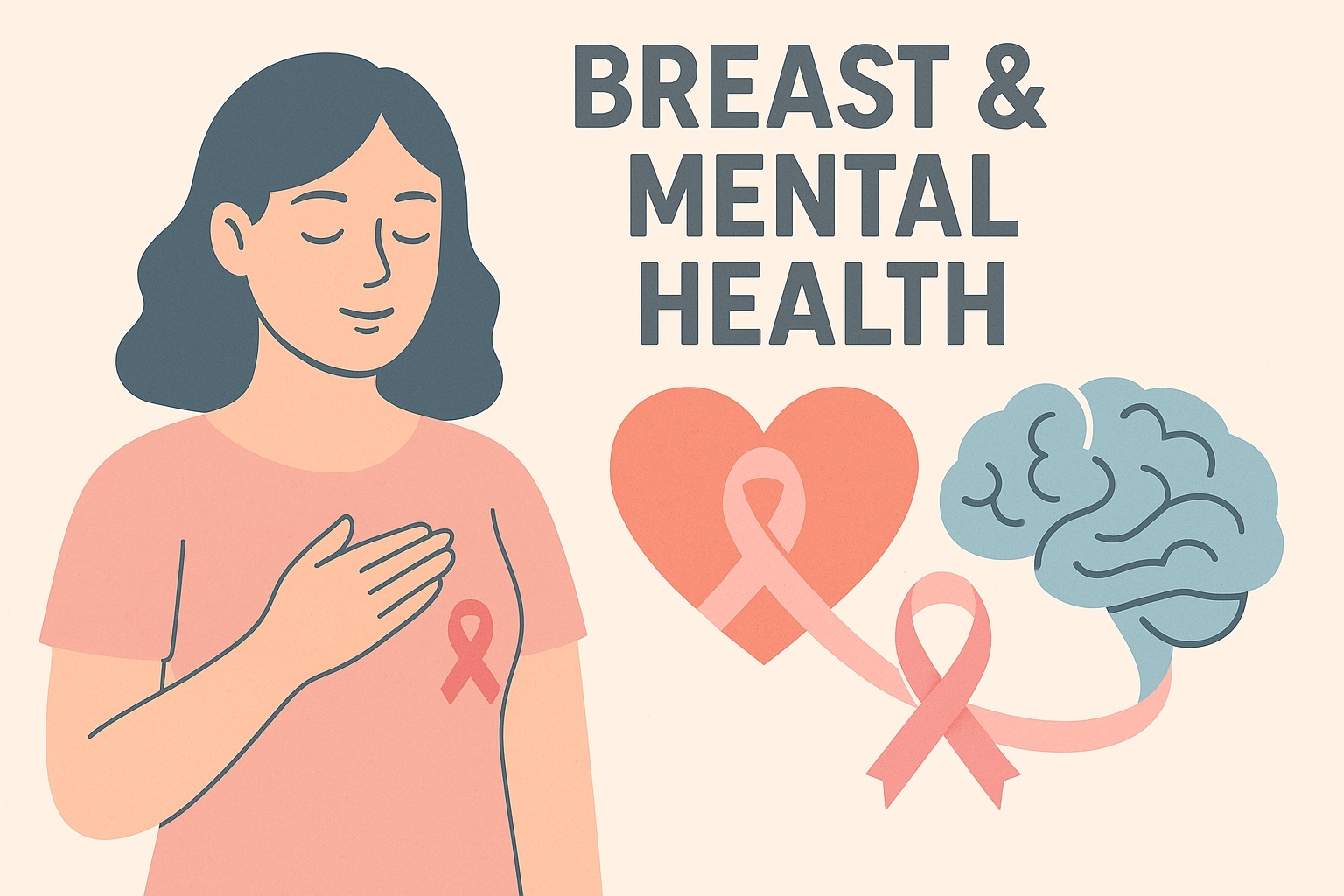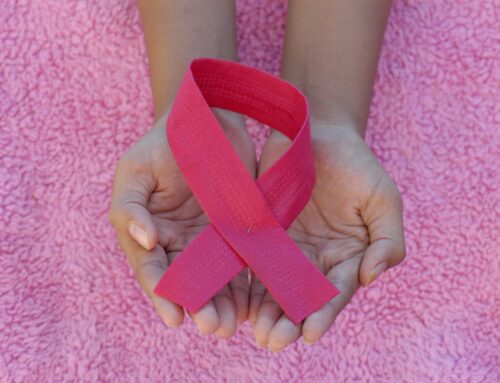
What you need to know about the link between breast and mental health
In the United States alone, 2,001,140 new cancer cases are predicted to occur in 2024[1]. When examining the prevalence of breast cancer in sub-Saharan Africa, it’s observed that breast cancer makes up between 30% to 40% of all cancer cases in the region[2]. The risk of depression in patients with breast cancer, specifically, is higher than with other types of cancer[3]. However, by now, it is common knowledge that breast cancer can be detected early and is treatable. When caught early, according to the US National Breast Cancer Foundation, the five-year relative survival rate is 99%[4].
CANSA defines breast cancer as the unregulated growth of abnormal cells in the body that grow and increase in number without stopping, causing a mass. In breast cancer, these cells start in the breast and can spread to other parts of the body[5].
“Knowing where you stand with breast cancer, especially for people who are at high risk, can significantly reduce your anxiety. Screening can pick up a cancer before any symptoms appear at all, making breast cancer a survivable diagnosis.
Some of the guidelines to follow include doing a monthly breast self-examination, an annual clinical breast examination by a healthcare professional and going for an annual mammogram and/ or ultrasound from the age of 40.
Should a breast cancer diagnosis be received, the mental and emotional impact of the diagnosis must not be discounted. There is the possible trauma of the diagnosis, the physiological side effects of the various treatments, the dramatic changes to the body following surgery with or without reconstruction, as well as side effects from radiation and chemotherapy treatments.
However, there are some practical things that will help navigate the diagnosis and treatment while minimising the risk of depression:
- Set realistic day-to-day goals. Be gentle with yourself and do not expect that you will be able to do everything you did in the past.
- Human connection is important, especially if you are an older patient. If you are having to self-isolate, try to be in some form of contact with other peoplefor at least an hour a day.
- It is important that you have someone to talk to and confide in.Whether it’s a professional, friend or family member. It is good to decant and process the difficult emotions.
- Participation in positive events/actions can be very helpful. Playing music, painting and other activities that have positive emotional connotations are great options.
- Good nutritionis vital. A diet that is rich in fruits, vegetables, whole grains, and lean protein will bolster the immune system and aid in your well-being. Try to cut down on sugar intake.
- Exercise is proven to reduce stress and ease depression. As exercise in restricted circumstances can be a little difficult – reach out to your friends, family (and your doctor) for some exercise routine ideas that you can possibly do at home.
- Alcohol should be avoided as it is known to make depression worse and can interfere with antidepressant medication.
A breast cancer diagnosis that can lead to even more upheaval is a diagnosis in young women. While breast cancer is more common for women in their 50s, it can also develop in women in their 30s and 40s. Very rarely (but not impossible), men can develop breast cancer too6. Recently, there has been a noticeable rise in cancer diagnoses (not particularly breast cancer) among adolescent and young women, a trend observed more frequently than in previous years. Shuji Ogino, a Professor at Harvard Chan School and Harvard Medical School, and a physician-scientist in the Department of Pathology, noted an increasing cancer risk across generations[6]. In a recent Yale Medicine article by Kathy Katella, “early-onset” cancer refers to diagnoses in individuals aged between 18 and 49, and it was noted that ‘cancer is occurring in more adults at younger ages—before they turn 40 or 50 and sometimes even earlier’.[7]
The following is a short list for younger women to follow:
- If you have a suggestive family history, genetic counselling and testing can help to identify the underlying issue that, in turn, could help guide your future screening and lead to preventative action.
- Do a monthly breast self-examination.
- Seek help early should you have any cause for concern or notice any problem. Approximately 90% of cancers diagnosed at an early stage can be cured!
- Follow a healthy diet. This goes a long way in preventing cancer.
- Achieve and maintain your ideal body weight, as obesity is known to increase one’s risk of cancer.
- Follow a healthy and active lifestyle. Exercise can reduce your breast cancer risk by up to 30%.
- Avoid alcohol and cigarette smoking.
It’s important to note, however, that not all of these will work for everyone, and if you are showing signs of depression, it is essential that you speak to your doctor and get the medical help that you need. Remember, asking for help is not a sign of weakness; it is a sign of strength and emotional maturity.
[1] https://pubmed.ncbi.nlm.nih.gov/38230766/
[2] Cardoso G, Graca J, Klut C, et al. Depression and anxiety symptoms following cancer diagnosis: a cross-sectional study. Psychol health Med 2016; 21(5): 562–570.
[3] Ng CG, Mohamed S, Kaur K, et al. Perceived distress and its association with depression and anxiety in breast cancer patients. PLoS One 2017; 12(3): e0172975.
[4] https://www.nationalbreastcancer.org/breast-cancer-facts/
[5] https://cansa.org.za/files/2019/08/DOH-Breast-Cancer-Guidelines-Final.pdf
[6] https://news.harvard.edu/gazette/story/2022/09/researchers-report-dramatic-rise-in-early-onset-cancers/
[7] https://www.yalemedicine.org/news/early-onset-cancer-in-younger-people-on-the-rise




